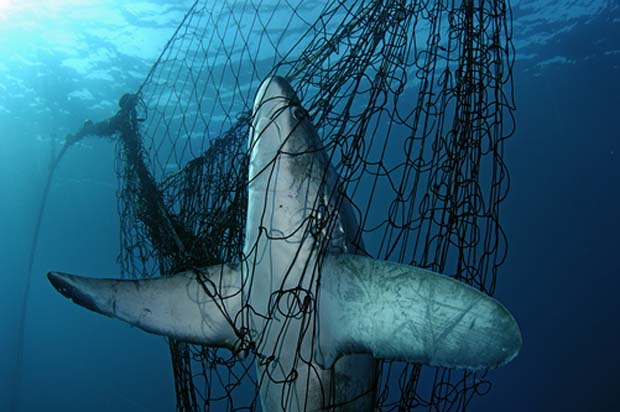Lost at sea nets could easily be tracked – putting an end to plastic ghost nets and traps. Nets can kill for years. Tracking these nets and traps would also help slow progress of the world’s oceans current 100 million tons of plastic floating at sea. Some plastics won’t decompose for over 500 years!
[dropcap]T[/dropcap]he environmental impacts of trawling are many – large nets that are dragged behind boats to collect fish often snap free or are turned loose when holes develop and become bobbing “ghost nets” in the sea. These loose nets continue to catch marine animals that get entangled in them and die.

Larger marine animal populations with longer reproductive cycles like sharks, dolphins, whales and sea turtle are the most aversely affected.
Even once the nets fall to the sea floor and start to break down, the nets contribute to the plastic pollution soup that plagues the ocean. It seems like it’s time to design a better fishing net.
Spanish engineering student Alejandro Plasencia has done just that by coming up with a fishing net design that could end the scourge of ghost nets. The so-called Remora system consists of a biodegradable net outfitted with Radio Frequency Identification (RFID) tags, an RFID reader and a smartphone app.
The system would allow fisherman locate and potentially retrieve lost nets so that they could be repaired and used again instead of just being dumped in the sea. If the fisherman can’t retrieve them, they can declare them as lost and notify NGOs like Healthy Seas with the tracking information so they can recover them.
If a retrieval isn’t possible at all, the nets would be made of a polymer with an additive called d2w in the threads that helps the net degrade in an environmentally responsible way so that it doesn’t contribute the the plastic pollution in the ocean that many smaller animals confuse with food.
“The ghost net and plastic soup phenomena threaten the way of life for many populations, so it’s a problem we were very interested in tackling,” Plasencia said.
The Remora system was a finalist for this year’s global James Dyson Foundation Award and was the national winner for Spain’s prize.
Source: Megan Treacy
[youtube id=”46hygjWSx9E” width=”620″ height=”360″]

